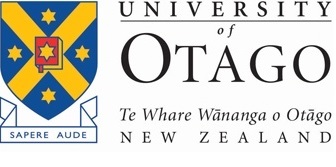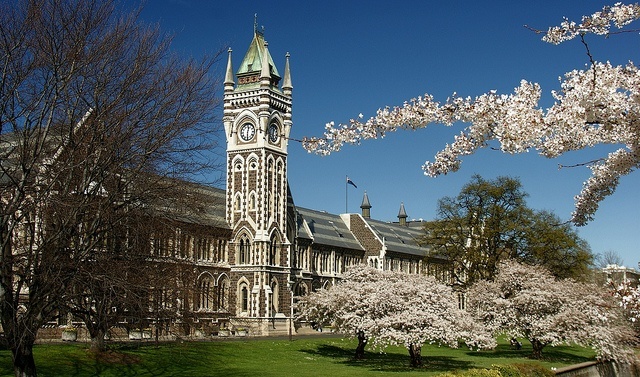University of Otago

University of Otago
MNU Co-ordinator: Chriss Hamilton ([email protected])
Website: http://www.otago.ac.nz/

History
The University of Otago, founded in 1869 by an ordinance of the Otago Provincial Council, is New Zealand’s oldest university. The University opened in July 1871 with a staff of just three Professors, one to teach Classics and English Language and Literature, another having responsibility for Mathematics and Natural Philosophy, and the third to cover Mental and Moral Philosophy and Political Economy. The following year a Professor of Natural Science joined the staff. The syllabus was widened and new lectureships established: lectures in Law started in 1873, and in 1875 courses began in Medicine. Lectures in Mining were given from 1872, and in 1878 a School of Mines was established. The School of Dentistry was founded in 1907 and the School of Home Science (later Consumer and Applied Sciences) in 1911. Teaching in Accountancy and Commerce subjects began in 1912 and in 1946 teaching began in the Faculty of Theology. The School of Physical Education was opened in 1947. Since 1961, when its roll was about 3,000, the University has expanded considerably (in 2010 there were about 21,000 students enrolled) and has broadened its range of qualifications to include undergraduate programmes in Surveying, Pharmacy, Medical Laboratory Science, Education, Physiotherapy, Applied Science, Dental Technology, Medical Radiation Therapy, Dental Hygiene and Dental Therapy and Biomedical Sciences, as well as specialised postgraduate programmes in a variety of disciplines. Although the University’s main campus is in Dunedin, it also has Health Sciences campuses in Christchurch and Wellington and an information and teaching centre in central Auckland (1996). The Dunedin College of Education merged with the University on 1 January 2007, and this added a further campus in Invercargill.
Research Highlights
He Kitenga reflects the concept of discover. The Māori word ‘kitenga’ derives from ‘kite’ which translates to words such as ‘see’, ‘perceive’, ‘find’ and ‘discover’. This title reflects the University of Otago’s connection to New Zealand’s cultural heritage as well as its commitment to national and international research and innovation. Horizons – Nga Pae Tawhiti – highlights Otago’s focus on discoveries that will influence the future.
International
With some of the top universities in the world as partners, the University of Otago takes seriously its role as a leading research university in the international arena. To support this commitment, a variety of University-wide initiatives are in place, ranging from grants to help staff with the internationalisation of the curriculum, membership of the NZ Centre at Peking University, through to the availability of accommodation for staff undertaking research at the National University of Samoa. The International Division itself offers a full range of services from the recruitment, admission and pastoral care of international students, through to working with departments across the University in the development of programmes and promotional materials, and the day-to-day administration of the Otago Global Student Exchange Programme. The Office of the Pro-Vice-Chancellor (International) includes a visits service, for international partners and VIP visits to Otago, as well as being responsible for managing the University’s international institutional partnerships and implementing the strategic internationalisation goals. The University’s Internationalisation Committee comprises representatives from each academic Division of the University.
Dunedin
Historic and sophisticated, Dunedin is the quintessential university city. Modelled on Edinburgh in Scotland, it is one of the best preserved Victorian and Edwardian cities in the Southern Hemisphere. A long, natural harbour gives way to the church spires and towers of the historic town centre and university, set against high, green forested hills. A golden trail of beaches and dizzying cliffs skirt the city’s thundering Pacific Ocean flank, where seals, penguins, albatross – and incredible surf – can be found. Deservedly, Dunedin is now a popular tourist destination in its own right.
